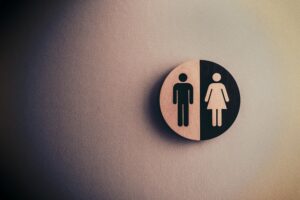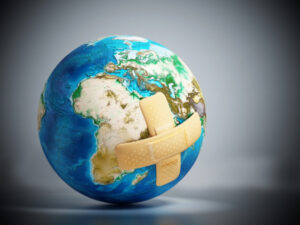THE MEDIA AND NATIONAL DEVELOPMENT

Different ages and eras have used and still use the media for development purposes. All media messages have one way or the other influenced the advancement of human society. Media contents are being used as a catalyst for development, though with few exceptions like ‘portrayal of violence and obscene materials’ flooding the unguided/loosely-guided social media platforms. In the beginning of media evolution, before the advent of democracy, the political system in any society controlled the media in ownership, contents and uses.
During the world wars, the media were used for propaganda purposes. The normative theories like the Authoritarian theory, Libertarian theory, soviet theory, explain the relationship between the government and the media. Things began to turn around for the media and society during the industrial revolution. Other theories emerged that insisted that the bureaucratic bottlenecks and professional control of the media should be removed. The media began to be seen and used for developmental purposes in many countries, up till today.
Development media theory
These theories evolved around the 1980s to fill the noticeable gaps between the developed and developing countries. They support the positive use of the media for national development, the autonomy and cultural identity of a particular national society, participative and democratic grassroot involvement. These theories are opposed to foreign dependency, domination and arbitrary authoritarianism. Mass media researchers like Harold Lasswell as far back as 1948, produced functional models of the media role in society which are still relevant today. The model accords a social responsibility function to the media.
Perspectives to the media and its role in development
Various aspects can be drawn in this sub topic but we will limit to 3 of these.
- First there should be a holistic belief and supportive action of the government to truly see and use the media as a tool for national development. There should be enabling and favorable policies that spell out the functions, uses, ownership, control/regulations of the media in such a manner it can be gainful in the national development. Only when this background is built can the media be effective enough.
- The second phase concerns the use of media strategies as information campaigns and advocacies to change people’s/citizens beliefs, attitudes and behaviors for developmental purposes for developmental gains. The media can create a climate for change by inducing new values, attitudes modes of behavior favorable to modernization, teach new skills, act as a multiplier of resources of knowledge, raise levels of aspiration, and people’s participation in decision making, help people find new norms, create sense of nationess, among others and make socio, economic and political development a self perpetuating process.
- The third perspective the media could be seen as a pointer to draw attention more on rural community development. The media should address how it can be used to spread new innovations, practices, and ideas among the rural dwellers to keep them abreast of latest development and inventions and help government focus on how the ruralites can be benefactors of such.
Types of media used for development
The conventional media (print, radio and television) were used by the government and world agencies to communicate developmental information prior to the advent of information technology. With the explosion of various technology assisted media, social media has emerged and become the most powerful, in terms of reach, access, usage convenience and more economical. Citizens journalism has been born out of this new evolution. Now, information can emanate from non-professional journalists even from the remotest community, showcasing the situation and reportage of live events. The whole world in the words of Marshall McLuhan has indeed become a global village with boundless flow of information. Many are being exposed to various digital information (both good and bad) per second.
Toward a positive development
A correspondent and relevant models have to be developed for the current media explosion, otherwise, many unguarded users of the media may be prone to negative application of contents to the detriment of the society. The agencies, professionals and social media owners can put together checks on the use of media, especially the easily accessed social media, ensuring that contents are geared towards inducing in audiences, ideas, sources and means of contributing to the social, economic, political and moral development of the society they live in.
#TheMediaandOurWorld
#MediaandTechnology
#MediaandDevelopment
#ThePoweroftheMedia




